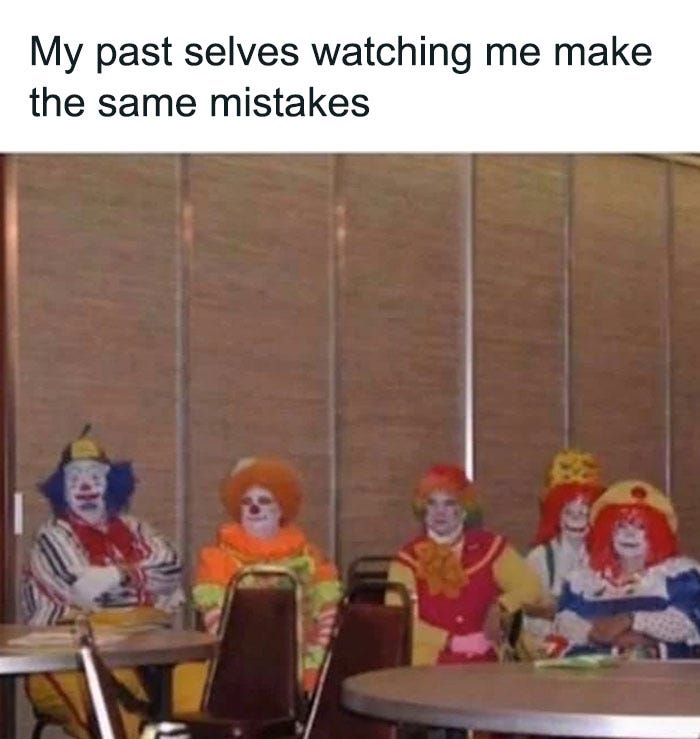Hi there! Welcome to another week of making your mental health simpler.
Today’s topic is one that almost always makes me want to give a lecture when it crosses my conversations.
“Oh, I don’t understand why therapists all want to talk about our parents. It’s so cringy and cliche.”
“Oh, but I don’t want to talk about parents in therapy. I just want to deal with what I have and move on. Quick and easy.”
“Oh, talking about my parents in therapy means I am going to blame them. I love my parents, I don’t want to blame them for anything. “
Have you ever thought that? I have heard that more than once.
The reason we always come to talk about parents in therapy is that it is usually the relation or context in which you acquired most of your stories & rules about yourself, the world, and lots of other stuff.
We don’t live in a hollow space that we fill randomly with information.
We build on stuff.
When we are born, we are born with some default settings - not much, but lots of potential.
We can see, feel, touch, smell, and taste but we don’t understand much of that.
Then, as we grow older, we start to interact more with our caregivers who start explaining to us the environment.
Then we start to make connections between events and reactions, between behaviours & reactions, among all kinds of emotions and behaviours that we see in ourselves and others.
These behaviours are encouraged by our caregivers, some are punished or are just not accepted.
The way we learn how to receive love, affection, and criticism is all shaped by our relationship with our caregivers.
We cannot live outside this relationship and it fuels most of the other relations that we have.
So this is the nuts and bolts of how we learn how to deal with our environment.
Now, I DO NOT mean that are parents are responsible for our behaviours as adults.
You and I are entirely responsible for our behaviours as adults.
And in therapy, I always work with the here and now of you.
Nonetheless, understanding where those stories & beliefs come from, putting them in context helps tremendously with creating stories and actions that are useful to you in the here and now.
I just heard from a client of mine last night at our session: “I wish somebody had taught me how to be a human being,” referring to the fact that their parents never showed any sign of noticing them as children, and when they did, it was for the wrong reasons.
I don’t mean to sadden you, this is just an extreme example of how faulty relationships with parents can influence the way that we see ourselves and our lives.
So the next time your therapist brings your parents into the session, just be curious & open about this.




An excellent read, elucidating and free of judgement. Thank you.